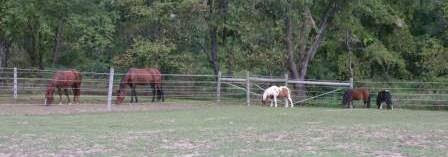(http://swebman.com/2013/04/29/boss-vs-leader-2/)
I’m sure that most people have seen the image that has
circulated on Facebook featuring a list of traits that differentiate a “boss”
from a “leader.” I think this is an important
distinction to make in light of how these opposite styles of leadership can
affect an organization.
On occasion when I was teaching riding to kids, parents would
be nearby, watching proudly at the sight of their child happily leading a thousand
pound horse to the grooming stall. As
often happens with inexperienced horse handlers, the horse would sometimes veer
“off course” to the hay pile that was just beyond the grooming stall. When the child struggled a bit to figure out
what to do, parents would quickly say to them “You need to be the boss of that
horse and make him do what you want.”
Okay, let’s chew on that statement for a moment.
A. What does “be the boss” mean to a 12 year old,
who has likely expressed disdain at being bossed around by anyone? Words and phrases in the thesaurus describing “boss”
include: “Command, Bully, Give orders in a demeaning manner and Person in
charge.” To most kids and adults I know,
none of these words represent positive attributes. In fact, most people clearly state their
dislike of other people who exhibit those characteristics. And, I find that many people
are actually uncomfortable with the thought of being “the boss.” My guess is that most people don’t want to be called
“the boss” as they believe that it paints them in a negative light.
B. What is the parent inferring when they use that
phrase? Where is the parent getting
their reference of the term “boss” from? When people use the phrase “you need to be the boss” I
immediately begin to wonder what their reference point is for it. Do they have a “boss” who “makes” people do
what the boss wants? Or are they
themselves “the boss” who tries to make others do what they want? As I work with individuals and groups in my equine
experiential leadership and team development program, the notion of “being the
boss” is one that quickly becomes a point of discussion when people realize
that it is not the way to lead others in a way that creates trust. The horses are very good at providing
non-judgmental feedback to support this.
C. Do the actions of “being the boss” really make a
horse – or people for that matter -- do what you want? Going back to the parents encouraging their child to “be the
boss and make the horse do what you want” -- have you as an adult ever tried to
“make” someone do what you want and been successful in the long term? While horses can be extremely compliant, they
also are quite a bit more powerful than humans and if they really don’t want to
do something, they don’t have to. If you’ve
ever been bucked off a horse, you know what I’m talking about. When you think of someone who is bossy, what
are the actions that you associate with that?
I’m guessing they are not actions that create a warm and fuzzy feeling for
you or encourage you to want to go along with them. Going back to the thesaurus: “Command,
Bully, Superior, Give orders in a demeaning manner….” In most instances, these are not the actions
that make people (or horses) willingly follow someone.
What if, instead of advising their child to “be the boss and
make the horse do what you want,” the parent said “be the leader and the horse
will come with you” – would this change the interaction? How many organizations have too many people
in leadership positions thinking that “being the boss” is the way to get people
to do what is needed? I’m guessing your
response is “Too many.” I agree. So let’s start changing our leadership
vernacular. Trust and a willingness to
follow are not the result of “being the boss” – but they ARE the result of being
an effective leader who communicates clearly with intention, empathy, compassion and an
understanding of what motivates different individuals. It’s what horses respond to and I believe it’s
what people want as well.


